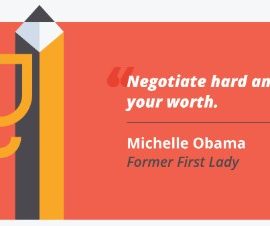
How will you prep for your job search? Keep reading for some suggestions on how to plan, get organized and start your search.
In a previous post, Checklist for a Successful Job Search, I introduced the Start My Job Search Checklist and prepping for your job search is Stage 1 of the checklist.
Download the free checklist here.
In addition to this tactical checklist, you might be interested in my recent article at HBR.org called “5 Tips to Help You Get Hired Right Away“ about insider secrets about the job search process.
Checklist Stage 1: Prep for your job search
If you’re ready to start your job search and are overwhelmed by everything you have to do, this is a great place to start!
First, create a job search strategy then update key documents, evaluate your social media and start talking to people in your network.
Create a job search strategy

Before you do anything else, create a job search strategy. Your job search strategy helps you clarify the kind of job you want and the approach you’ll use to get it. Creating a strategy is not as scary as it sounds.
The article Create Your Job Search Strategy walks you through a series of questions to help you clarify your goals and provides an example of a strategy.
Update your resume and cover letter
Once you have a strategy, update your resume and your cover letter. Use your strategy to help you decide what to highlight on your resume.
Your resume markets you as a candidate, so you can get through the application process and score an interview. The cover letter customizes our application to the specific company and role and adds flavor to the details on your resume.
For some art and design jobs, you might also need to prepare a portfolio. Similar to the resume and cover letter, consider the portfolio as a tool to market you. Tell the story you want potential employers to see.
Resources for resumes and cover letters
There are a lot of resources available online to help with writing good resumes and compelling cover letters. A few to check:
The Balance Careers website offers great job search advice and templates that you can download to get started.
Alison Green offers a book called “How to Get a Job: Secrets of a Hiring Manager” and also gives tips at her website – Ask A Manager.
Career Contessa offers terrific advice for writing a cover letter in the article 5 Easy Steps to Writing a Cover Letter.
Update your LinkedIn profile and participate

Linked In is a critical part of any professional job search. If you don’t have a profile yet, set one up today! If you do have one, make sure it is updated and showcases you as a candidate.
As a job searcher, you should participate on Linked In. Post about your skills and availability, but don’t stop there.
Become a regular contributor – post links to interesting articles related to your field and comment on other people’s posts. Join groups related to your industry or profession. Make connections to new people. Reach out to existing connections via messaging.
These actions keep you visible to your network. It increases the likelihood that they will think of you if they hear about an open job. It does not take much time to be active on Linked In, but it opens up many possibilities.
Linked In offers a blog with articles such as Jane Fleming’s ‘20 Steps to a better Linked In Profile in 2020’.
Clean up your online presence

It’s time to make sure that your past does not come back to haunt you which means cleaning up your online presence.
Google your name and see what comes up.
If questionable information pops – like photos of you partying or angry tweets – figure out if you can remove that negative information.
A potential interviewer may do that same Google search. What do you want them to find?
Contact your references
Early in your search, contact people who can act as references for you when a potential employer asks.
Consider references such as a previous boss or co-worker. If you’re earlier in your career, consider people like college professors, mentors or a supervisor from an internship.
Contact those people and let them know you’re in a job search. Ask them if they’ll be a reference for you as needed.
Remember, those people also provide a great networking opportunity. Ask them if they have any job leads or could recommend other professionals to network with.
Leverage search resources

Don’t overlook any resources available to help your job search!
If you were laid off from a big company, they might offer job search resources through third parties.
Review your severance agreement to see if a company like Right Management or Lee Hecht Harrison has been contracted. If yes, your previous employer is paying for those companies to help you. Take advantage of their services! They will help you write resumes and cover letters, practice interviewing and find job openings.
You may find similar resources from your university or college career center. They often support alumni job searches in addition to current students. University career centers offer resume services, classes and connections to alumni networks.
Another possibility is finding help through your state workforce planning organization and the federal government. Check out Career One Stop for career exploration, training and jobs.
Take advantage of all these resources to get ready for a successful job search. Good luck!
Check out the entire Start My Job Search series
For an overview of job searching in 2021, read my article on HBR: 5 Tips to Help You Get Hired Right Now
For tactical tips, read the following articles:
- Checklist for a Successful Job Search
- How to Prep for your Job Search
- Important Strategy Questions for Starting a Job Search
- How to Search and Apply for Jobs
- How to Ace an Interview
- How to Strategically Start a New Job
Additional Resources to Prepare for your Job Search
The Balance Careers website offers great job search advice and templates.
Check out Alison Green’s book “How to Get a Job: Secrets of a Hiring Manager” and also find tips at her website – Ask A Manager
Career Contessa offers terrific advice for writing a cover letter in the article 5 Easy Steps to Writing a Cover Letter.
A version of this article was originally published on startmyjobsearch.com which is no longer active.



